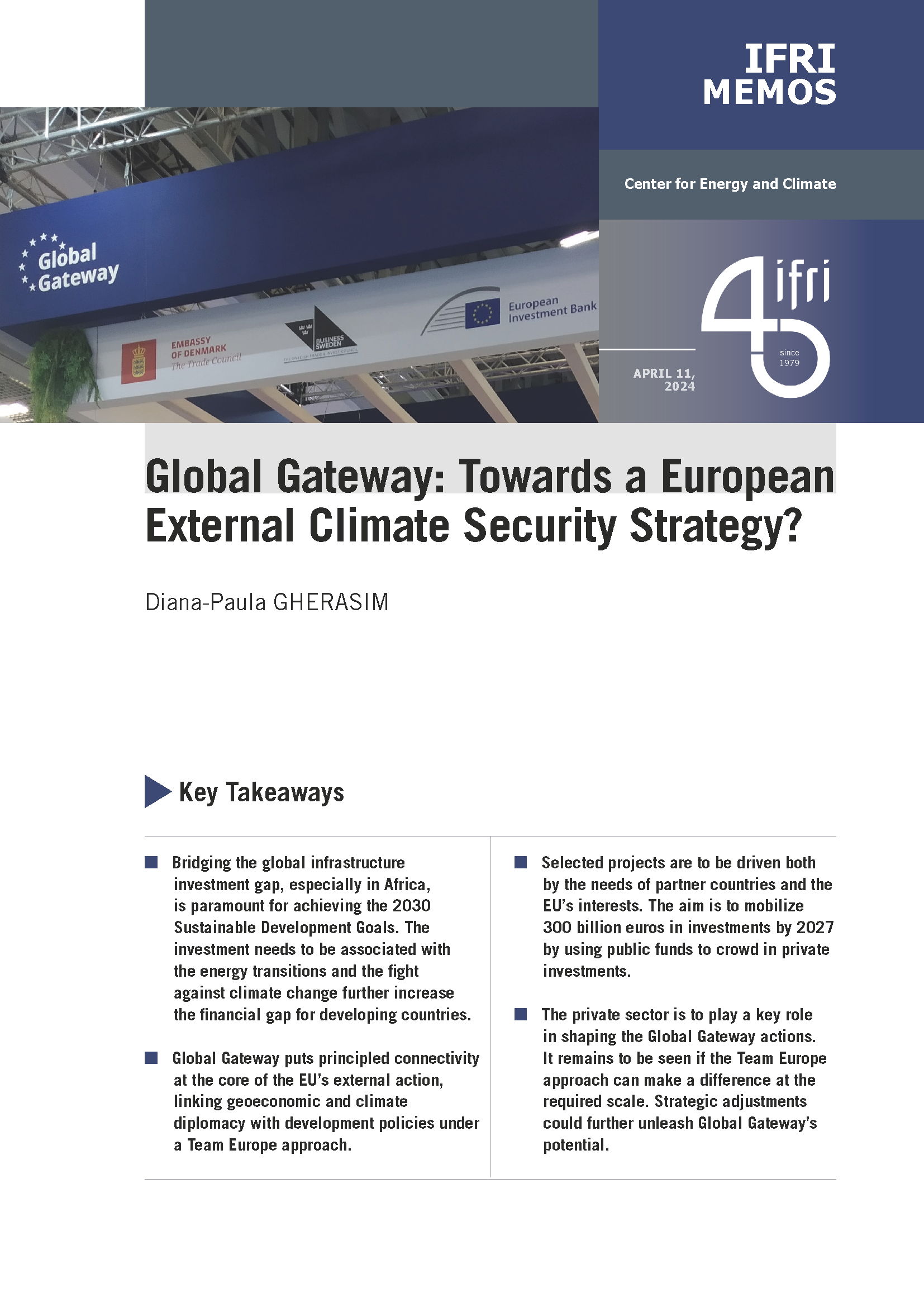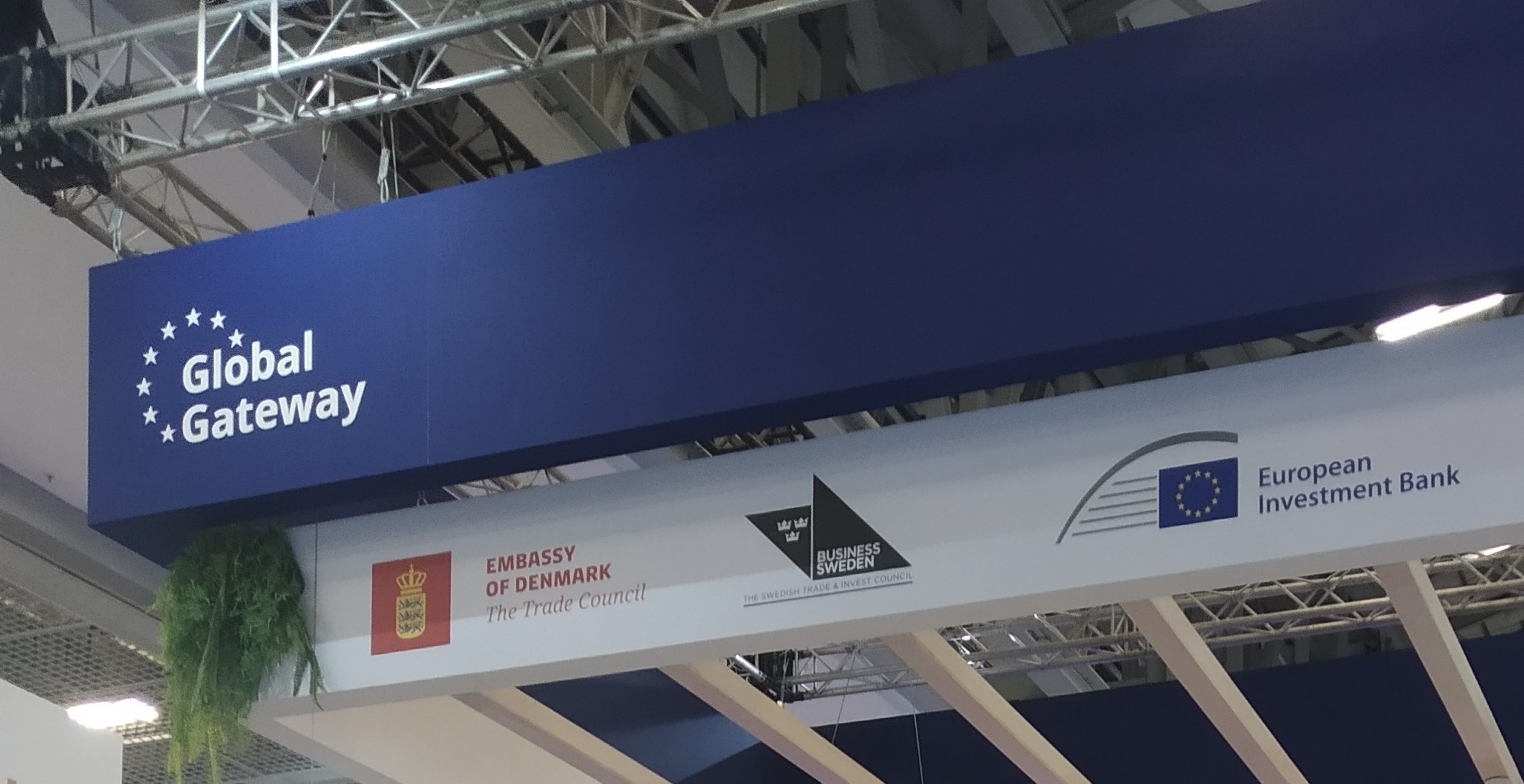Global Gateway: Towards a European External Climate Security Strategy?

Transport, energy, water and telecommunications infrastructures are vital for economic development. These infrastructures are also fundamental for the achievement of the 2030 Sustainable Development Goals (SDGs), which have suffered a setback notably due to the Covid-19 pandemic, wars, and weak economic performance. Based on the Global Infrastructure Outlook, the world needs 97 trillion dollars ($) in infrastructure investments (energy, water, airports, ports, rail, road, and telecommunications) over 2016-2040, and based on the current investment trends ($79 trillion over the given period), the cumulative global infrastructure investment gap amounts to $18 trillion.

Bridging the global infrastructure investment gap, especially in Africa, is paramount for achieving the 2030 Sustainable Development Goals. The investment needs to be associated with the energy transitions and the fight against climate change further increase the financial gap for developing countries.
Global Gateway puts principled connectivity at the core of the EU’s external action, linking geoeconomic and climate diplomacy with development policies under a Team Europe approach.
Selected projects are to be driven both by the needs of partner countries and the EU’s interests. The aim is to mobilize three hundred billion euros in investments by 2027 by using public funds to crowd in private investments.
The private sector is to play a key role in shaping the Global Gateway actions. It remains to be seen if the Team Europe approach can make a difference at the required scale. Strategic adjustments could further unleash Global Gateway’s potential.
Download the full analysis
This page contains only a summary of our work. If you would like to have access to all the information from our research on the subject, you can download the full version in PDF format.
Global Gateway: Towards a European External Climate Security Strategy?
Related centers and programs
Discover our other research centers and programsFind out more
Discover all our analysesFinancial Tools for Boosting Resilience of CRM Value Chains and Strategic Stockpiling
Critical Raw Material (CRM) value chains are more vulnerable than ever and entire vital industries in Europe are now at risk if supplies are not secured through strategic and urgent actions, given mounting geopolitical confrontation, resource nationalism, growing demand and limited supply increase.
Placing the EU on a Warfare Footing: Energy and Raw Materials Priorities for 2026
The year 2025 has confirmed that one must prepare for much worse in the field of geopolitics and geoeconomics as the intensity and frequency of shocks increase and as the European Union (EU) has no more stable flanks now that crises with the United States (US) become so frequent and reveal a systemic rift. In the world, barriers to trade multiply and dependencies are weaponized.
Brazil One Year Away from the October 2026 General Elections
Brazil’s general elections will be held on October 4, 2026, to elect the president, vice-president, members of the National Congress, governors, deputy governors and state legislative assemblies. For the presidential and gubernatorial elections, a second round will be held on October 25 if no candidate obtains a majority of the votes in the first round.
COP30: An Inflection Point for Climate Action and Governance
The 30th Conference of the Parties (COP30), opening in Belém, Brazil, on November 10th 2025, convenes at a perilous moment.













